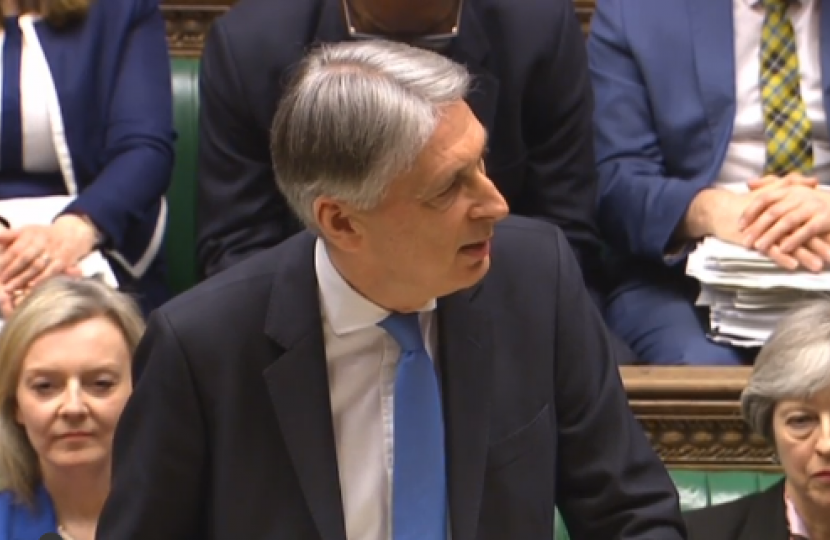
In the first ever Spring Statement to the House of Commons on Tuesday 13th March, the Chancellor of the Exchequer Philip Hammond laid out the latest forecasts for the UK’s economy and reaffirmed the Government’s financial plans and spending goals for the coming years. He announced that the Office of Budget Responsibility (OBR) had revised its growth forecasts for 2018 up to 1.5% after stronger than expected progress in the early months of the year, with the economy having now grown for 8 consecutive years and being 17% bigger than it was in 2010. He also revealed that the deficit had been reduced by £108 billion over the last 7 years, with forecast borrowing for the year being revised down by over £4 billion and expected to fall to below 1% of GDP by 2022/23.
This progress, the Chancellor said, has allowed the Government to commit billions more to public services at the same time as lowering taxes for the least well paid. Since the Autumn Statement in 2016, the Government has committed £60 billion in new public spending, including £9 billion for the NHS and £2.2 billion for education and skills. At the same time, 31 million people’s taxes have been cut and over 4 million of the lowest paid have been taken out of paying any income tax at all. Fuel duty remains frozen for the eighth successive year and the National Living Wage will rise again to £7.83/hour from next month, which represents a £2000 pay rise for the lowest paid full time workers since 2015.
The Chancellor clearly showed that the best way to raise money for our public services is to create a strong and productive economy. This means that people are able to pay more tax even as the system of taxation becomes fairer and less burdensome and spending today does not have to be offset by crippling debts in the future.
The Chancellor also outlined how the Government’s policies have helped people across the country, including in my own constituency of Mid Worcestershire. In my constituency, 43,917 working people have benefitted from increases in the Personal Tax Allowance and 5,750 people have started apprenticeships since 2010, meaning more disposable income for working people and a more diverse skills base across the county. I was also delighted to hear that a deal has been reached between the Government and West Midlands planning authorities to build 215,000 homes by 2030/31 with the help of a £100 million grant from the Land Remuneration Fund.
I have long been lobbying for greater spending on our core public services. But this has to be paid for and it can only happen through higher taxes or higher tax revenue as a result of a growing economy. The latter is always preferable. I was therefore happy to hear the Chancellor reaffirm his commitment to increases in public spending that reflect the more positive state of our public finances, with a strong indication that this year’s Autumn Budget will look to effectively distribute even more public funding to key services. I have lobbied particularly hard for increases in health funding and am glad that further increases on top of the £9 billion committed to the NHS in the Autumn Budget have not been ruled out.
I am proud of the progress that the Government has made since 2010 and look forward to seeing how the fruits of a growing economy and lowered national debt are reflected in our public services and in working people’s wallets.
